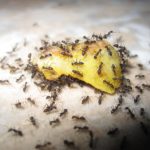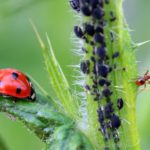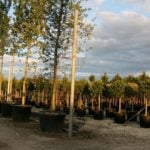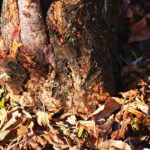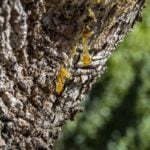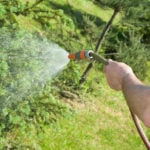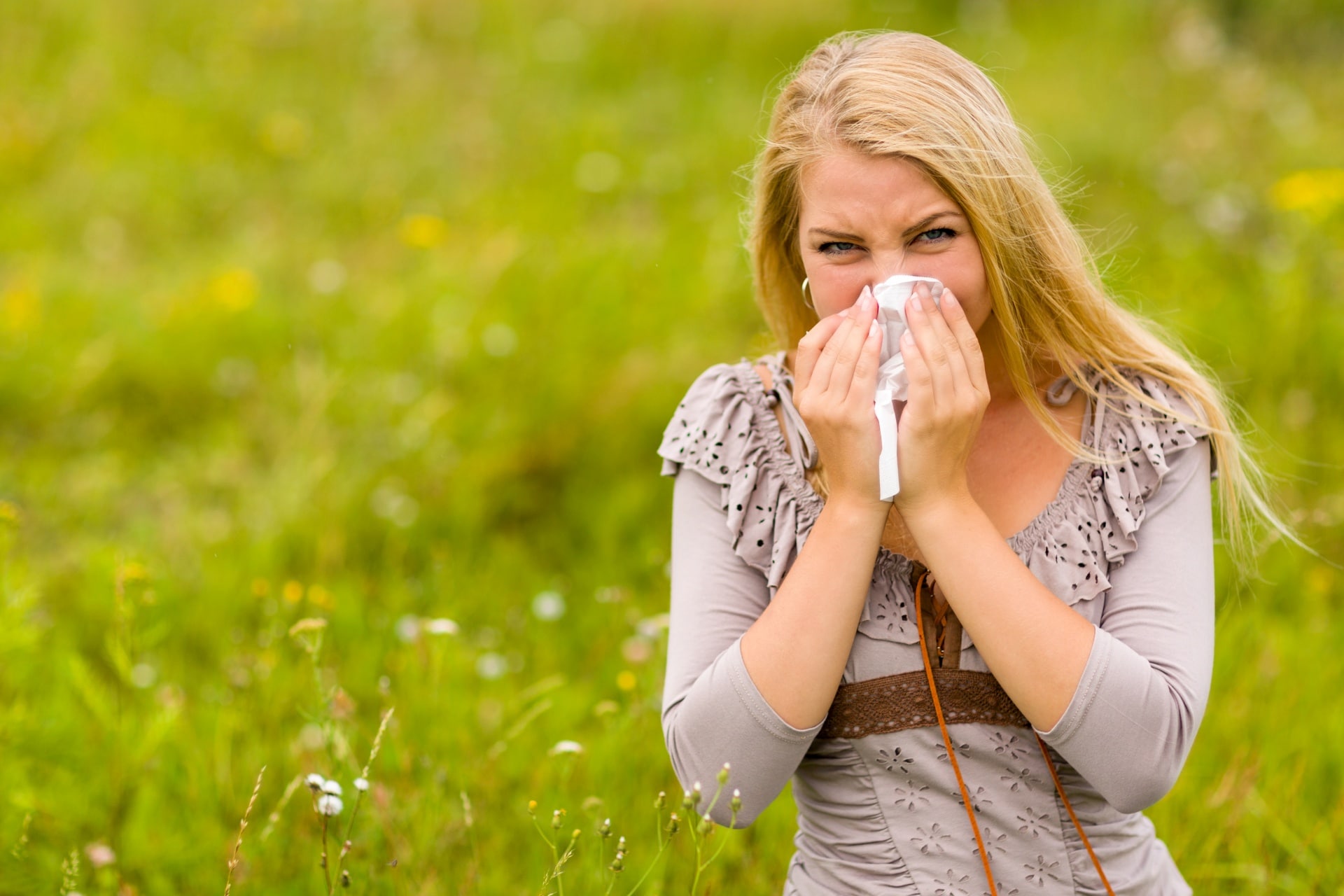
Atlantans take pride in the city’s reputation of being a “city in a forest.” It’s estimated that nearly 40% of Atlanta is covered by a tree canopy, which is unusual for a major metropolitan city.
But with the pride comes some headaches — the allergy-triggered variety. Male trees spread pollen as part of the mating process that ensures the continuation of the forests. That pollen wafting in the air triggers an immune system response in some people — what we call an allergic reaction. The result is coughing, sneezing, runny noses, and watery eyes.
Pollen-Prolific Trees
Of about 50,000 known tree species, only about 100 have pollen that trigger allergic reactions. As luck would have it, Atlanta is home to many of those allergy-triggering trees, including oak, elm, and pecan.
Most trees in Atlanta spread their pollen from January into summer, but some, like the popular import Chinese elm, wreak havoc in the fall. With about 25 varieties of trees common in Atlanta, there’s sure to be something to annoy every allergy sufferer.
Seasonal allergies can come from grass and flowers, as well as trees. And their severity can vary both by season and by local weather patterns. In spring 2019, for example, pine trees produced the highest pollen counts in Atlanta. Pine pollen gets so thick people actually see the residue on cars and in the streets and blame it for their misery. But pine doesn’t cause the greatest suffering. The pollen grains are so large most can’t make it into people’s lungs.
“The spring pollinating hardwood trees like oak, birch, maple, and elm cause the most severe allergy symptoms for those allergic to tree pollen,” according to Cheryl Lawrence, head of the pollen Count department at Atlanta Allergy & Asthma Clinics. Sweetgum and hackberry also contribute to the pollen cloud that envelopes the city.
If the sheer number is an indicator, oak may be the worst offender. More oaks are planted in city parks and along streets than any other variety — and that doesn’t include the number growing on private properties.
Atlanta Ranks Low in Allergies
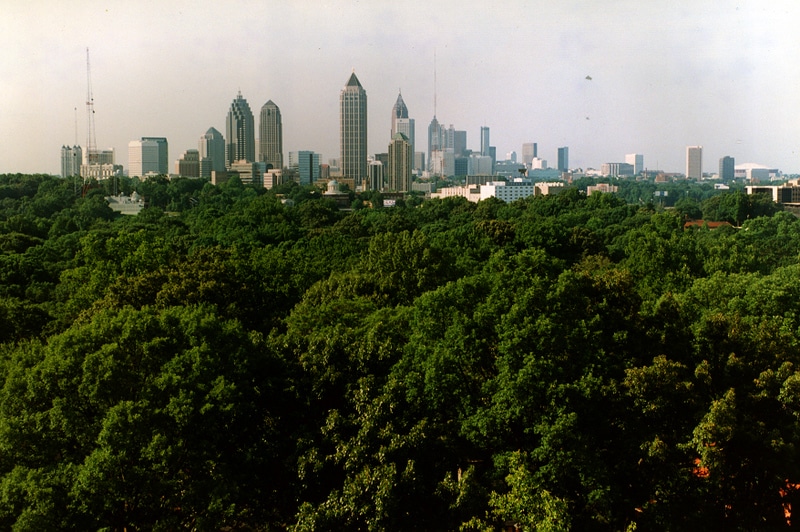
If it’s any consolation to sufferers, Atlanta is not the worst city when it comes to allergies, despite its impressive tree canopy. In 2018 the city ranked 76th among American communities.
Climate and weather have an enormous impact on pollen and allergies. Pam Knox, a public service associate and agricultural climatologist for the University of Georgia, says because of its location, Atlanta has a long growing season.
“If you have a mild winter and early spring, allergy season starts early, Knox said. “It’s worse after a few days of dry weather when pollen collects on surfaces and then gets picked up on a windy day. Having a cold winter and a warm spring is the worst-case scenario.”
Knox blames global warming for an uptick in allergy symptoms. “No doubt as we get warmer springs, pollen season comes earlier. Pollen season is shifting.”
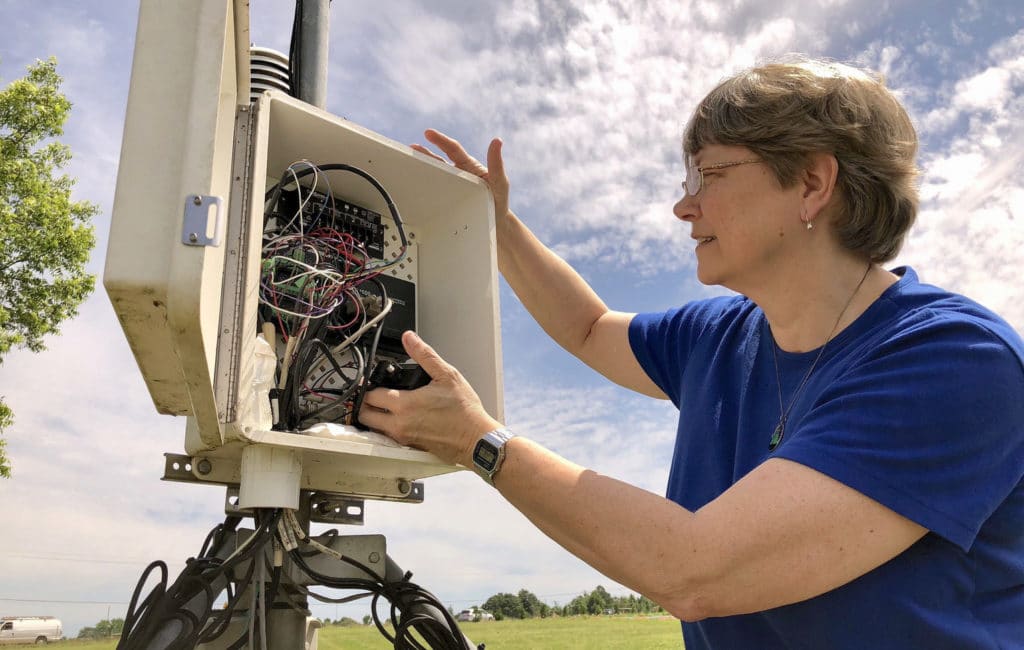
Another factor is carbon dioxide levels. Higher levels can prompt plants to produce more pollen. In Atlanta, automobiles contribute the greatest volume of carbon dioxide into the air.
Botanical Sexism — It’s a Tree Thing
And still another contributor may be “botanical sexism.” People prefer to plant male trees rather than females because they create less mess from seeds and seed pods. The more male trees, the more pollen.
Knox said trees aren’t the only culprits. Grasses and weeds stir allergies from late spring through summer and ragweed kicks in during late summer through the fall. Flowering plants get an unfair portion of the blame. In fact, pollen from flowers – the stuff that bees like – is relatively heavy and sticky and not easily carried on the wind.
Rain brings at least temporary relief to sufferers, Knox said. “It washes pollen out of the air.”
The first freeze sends most plants into dormancy, offering Atlantans a respite of a few weeks.
Some people don’t suffer allergies at all, while others are allergic to one specific tree pollen, and yet others are allergic to several kinds.
Remedies
Allergy sufferers can find out which pollens are causing their agony and get the appropriate medication. Just ask your doctor to administer a “Prick Test” which exposes you to small amounts of different pollens to isolate the ones causing the problem.
Television ads abound with over-the-counter treatments for allergies, and some can be useful. Home remedies such as eating honey, drinking herbal teas made from gingko and stinging nettle are touted as cures, but not scientifically proven effective.
Atlanta news media provide pollen alerts to let people know the days when the count is going to be high. Those are the days you can take precautions.
- Wear a pollen mask.
- Using special HEPA filters in heating or air conditioning unit.
- Bathing often.
- Changing clothing and bedding regularly to get rid of pollen.
Of course, you could also stay indoors during high pollen days as you curse the people who planted all these pollen trees
